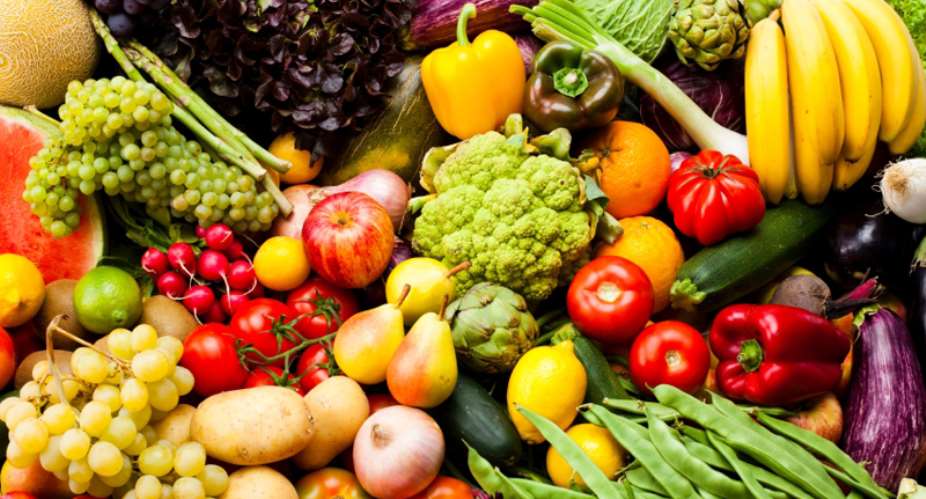Post-harvest food and grain losses pose serious challenges for most of African countries. According to estimates provided by the African Post-harvest Losses Information System, the value of post-harvest grain losses in sub-Saharan Africa could total US$4billion a year out of an estimated annual grain production worth US$27billion.
This is roughly equivalent to the value of annual cereal imports in the region during the same period. Given the near-doubling of global grain prices over the last decade, the value of current losses is likely much higher. Conservatively, such a magnitude of food loss could meet the minimum annual food requirements of at least 48 million people across the continent.
In Ghana a significant part of food crops produced is being lost due to number of reasons, including high moisture, pests and other diseases. In some cases as much as 35% of cereal and between 20–60% of tubers, root crops and bulbs are lost. Moreover, Ghana losses about 320 000 tons of maize annually, which accounts to 18% of the annual maize production. According to the report by Alliance for a Green Revolution in Africa (AGRA), as much as 60% of Yam produced in Ghana, for instance, does not make it to the consumer.
To prevent spoilage, farmers have to sell their produce cheaply during harvest. This leads to early shortage on the market and high prices and also shortage on the export market. There is also loss in quality through sprouting and rotting for those tubers that are stored. There is therefore a need to extend shelf life and improve the quality of yam.
The figures raise concern against the background that according to the UN Food and Agriculture Organization (FAO) the global productivity should increase by nearly 70% to meet the demands of growing population. With current challenges that Africa faces, the achievement of this goal will be quite difficult without implementation of modern techniques.
To tackle this issue, the Ghanaian scientists decided to use nuclear irradiation to keep food and grains safe and healthy. Indeed, the food irradiation could play a significant role in reducing food losses and improve food safety. Nuclear treatment of produced food helps to extend shelf life and improve significantly the quality of offered production.
This method is not only high efficient, but also safe and does not pose any risk to end consumers. The World Health Organization, FAO, and IAEA have reviewed accumulated data from about 50 years of research. They found that irradiated food is as safe as food preserved with other techniques, such as freezing or canning.
Among the other techniques of food preservation, the irradiation is the most extensively studies one from the point of view of toxicology and side effects. Decades of testing among all over the world demonstrated that the irradiation does not have adverse effects on consumer.
Unlike traditional forms of food preservation nuclear techniques do not cause changes to the taste, appearance, nutrition value and final quality of food. After irradiation the food does not become “radioactive”. Food irradiation is the process of exposing food to ionizing radiation without direct contact to the source of the energy. The food also does not come into contact with the energy source, so it cannot become contaminated by radioactive material.
Ghana has a long history in gamma irradiation research through the GAEC’s National Nuclear Research Institute (NNRI) and the Biotechnology and Nuclear Agriculture Research Institute (BNARI).
The BNARI of the Ghana Atomic Energy Commission (GAEC) has the only gamma irradiation facility in the country however, the installed capacity of the plant is not adequate to process the tonnage requirements of agricultural produce of Ghana.
In this case Ghana is planning to beef up its capacities in nuclear irradiation and science by exploring possibilities to create a special center of nuclear science and technologies.
Ghana needs a new center and research facilities to use its innovations in different spheres of life, from agriculture to medicine.





 Akufo-Addo spotted ordering chiefs to stand for his handshake
Akufo-Addo spotted ordering chiefs to stand for his handshake
 Akufo-Addo ‘disrespects’ every chief in Ghana except Okyenhene — NDC Communicato...
Akufo-Addo ‘disrespects’ every chief in Ghana except Okyenhene — NDC Communicato...
 Supreme Court clears way for dual citizens to hold key public positions
Supreme Court clears way for dual citizens to hold key public positions
 Be transparent, don’t suppress the truth – Prof. Opoku-Agyemang to Jean Mensa
Be transparent, don’t suppress the truth – Prof. Opoku-Agyemang to Jean Mensa
 ‘I won’t tell the world I was only a driver’s mate during challenges’ – Prof Jan...
‘I won’t tell the world I was only a driver’s mate during challenges’ – Prof Jan...
 We’ll prosecute corrupt officials of Akufo-Addo’s govt – Prof Jane Naana
We’ll prosecute corrupt officials of Akufo-Addo’s govt – Prof Jane Naana
 [Full text] Acceptance speech by Prof Jane Naana Opoku-Agyemang as 2024 NDC Runn...
[Full text] Acceptance speech by Prof Jane Naana Opoku-Agyemang as 2024 NDC Runn...
 Election 2024: Don’t be complacent, we haven’t won yet – Asiedu Nketia cautions ...
Election 2024: Don’t be complacent, we haven’t won yet – Asiedu Nketia cautions ...
 Election 2024: Stop fighting over positions in Mahama’s next govt – Asiedu Nketi...
Election 2024: Stop fighting over positions in Mahama’s next govt – Asiedu Nketi...
 Prof Jane Naana Opoku-Agyemang will restore dignity of vice presidency – Fifi Kw...
Prof Jane Naana Opoku-Agyemang will restore dignity of vice presidency – Fifi Kw...
